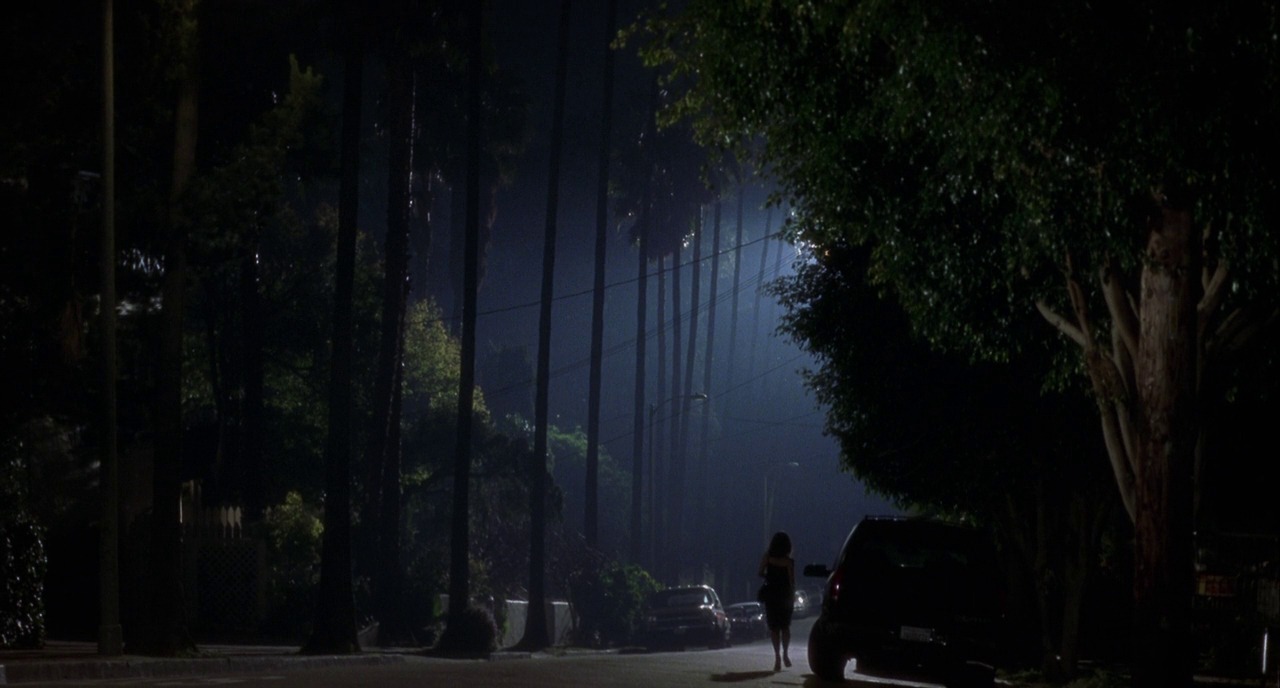
Many actresses play dual roles -- good and bad twins, past and future selves, real and idealized selves -- in ways that seem playful and overly conscious of their two separate presences. Instead, Watts portrays her character's broken and innocuous states of mind in nuanced, physical mannerisms that, while she doesn't seem one bit externalized from her characters, make it crystal clear why her personality has split so evenly. An example of this is her double reading of the script, first with Rita, and then with her co-actor.
Watts delivers the first reading in a way many amateur actresses would read it: hysterical, whiny, and exaggerated to reflect Betty's insecurities. Her acting with Rita conveys her pure ambition to succeed by mimicking stereotypes and expectations placed on women in her vulnerable position. This is just an extension of the over-the-top yet measured way Watts plays the Betty character in general -- bursting with dreams, worries, and distress that can be discerned from a single expression. However, her utterly sensual second delivery of the reading immediately suggests to the viewer that Betty is not all that she seems. When we find out who Betty truly is (the real Diane Selwyn), it's clear that the sensuality of her reading is a direct reflection of Diane's obsession with her sexuality, and the denial of passion that induced the events of the film in the first place.
Diane's major desires in life -- to be a famous actress and to be with her lover, are reflected in a reversed manner in these two scenes. She shows her lover Rita her career aspirations through stereotypical acting methods, and shows her co-actor the sensual passion that she strives to show Camilla in the real world.
Structures of control no one can escape -- the glittering city holds sway over all and rewards only those who can sacrifice themselves to its ever-constricting machinations of power and money. Faced with her failure to succeed, Naomi Watts' Diane tries to reconstruct her own life via dreams, cobbling them together with grandiose American film archetypes that speak not only to the universality of these figures but also the power of film to change the ways we contextualize and react to our world. However, Diane cannot escape from her ultimate fate, even in her dreams.
The dissemination of Diane's psyche through so many characters -- her imagined self, her lover, and the director who cannot control his career or love life, is the key to Mulholland Drive's mystery. She effectively acts out her hopes, desires, and failures through vastly different roles in her dreams, and her desires bleed into the other characters, too. For example, Camilla's distance and denial of Diane's love is transformed into a new, blank personality where she is entirely dependent on her ex-lover. Even the infamous and intentionally over-dramatic lesbian sex scene is a play on our own desires and expectations, giving us the satisfaction of seeing two beautiful women have sex right before the entire film falls into utter disarray (much like the film-burning split in Persona).
While my favorite Lynch will forever be Twin Peaks: Fire Walk With Me, I understand why everyone (myself included) can't stop talking about Mulholland Drive: here, Lynch uses symbolism in a way that seems completely opaque, yet over time reveals itself to be a relatively open-and-shut mystery that rewards the viewer with concrete answers that most of his other films aren't willing to give up.